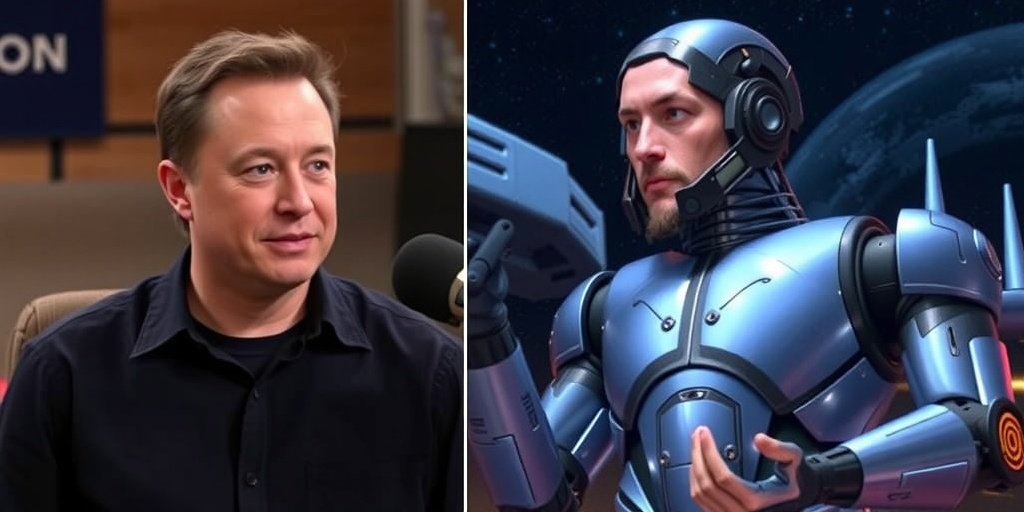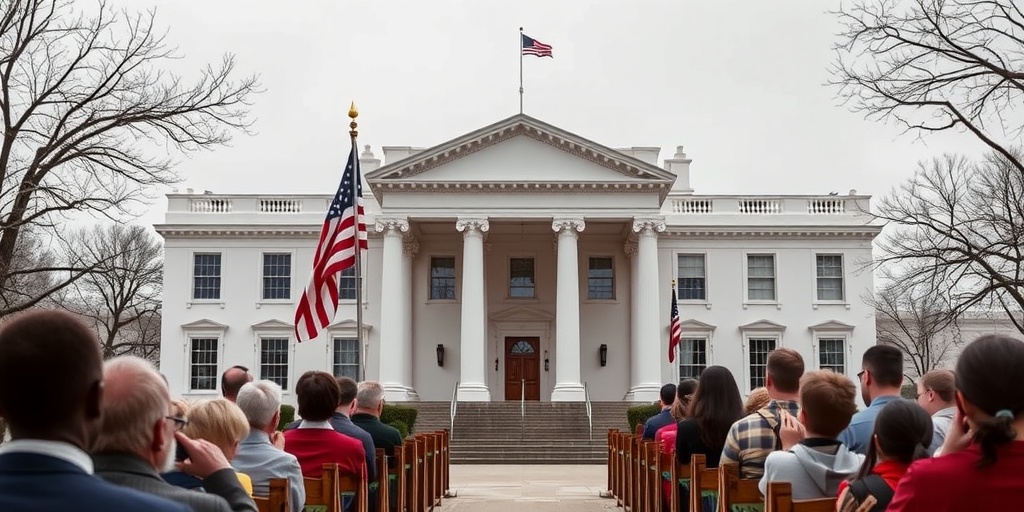Now Reading: Musk Goes Off Script on Social Security and Sex Robots with Joe Rogan
-
01
Musk Goes Off Script on Social Security and Sex Robots with Joe Rogan
Musk Goes Off Script on Social Security and Sex Robots with Joe Rogan

Elon Musk’s Controversial Remarks on Social Security Spark Political Reactions
In a recent three-hour interview with podcast host Joe Rogan, Elon Musk made headlines with bold comments that questioned the integrity of Social Security, labeling it “the biggest Ponzi scheme of all time.” His remarks came against a political backdrop where President Donald Trump has assured the public that popular safety net programs like Social Security and Medicaid are safe from budget cuts. Musk’s statement provided an unexpected opening for Democrats, who quickly lashed out, suggesting that Musk’s views indicated a desire to enact cuts that would directly impact older and disabled Americans.
This contentious statement added to the complexities surrounding Trump’s second administration, particularly as Musk has emerged as a prominent advisor known for his unfiltered perspectives and controversial ideas. Responding to Musk’s remarks, critics emphasized that such assertions risk alienating voters who rely on these programs, creating a challenging narrative for Republicans trying to reconcile drastic budget cuts with public sentiment toward popular welfare initiatives.
During Musk’s extensive interview, which marks his most extensive solo engagement since Trump assumed office again, he presented a paradoxical world view. On one hand, he portrayed his plans under the Department of Government Efficiency as revolutionary, asserting that he aims to reduce the government workforce, trim contracts, and eliminate regulations. “Normally, the bureaucracy eats revolutions for breakfast,” he noted, indicating the resistance he believes his proposals will face. Musk appeared optimistic, suggesting that this time might be different, as he characterized his cabinet as the “most revolutionary” in a century.
Despite the radical tone of his declarations, Musk appeared to strategically downplay his influence, suggesting that his role was to serve as an advisor rather than a decision-maker within the government. While he emphasized the importance of efficiency, he stated that his recommendations are nonbinding and must be confirmed by relevant government agencies, a move likely aimed at mitigating potential backlash against his ambitious proposals.
As the discussion veered into his futuristic beliefs, Musk engaged in speculative commentary about artificial intelligence. He voiced concerns about the unchecked growth of AI, suggesting that it might surpass human intelligence within the next few years. Musk asserted a high probability—around 80%—that AI would lead to beneficial outcomes, while acknowledging a 20% chance of catastrophic scenarios. He passionately advocated for a careful approach to AI development, especially in light of its potential societal implications.
Musk also delved into his aspirations for human settlement on Mars, which he framed as critical for the survival of civilization. He raised alarms about “a fork in the road,” highlighting existential threats such as nuclear war or natural disasters and articulated a pressing need to make Mars self-sustaining. His urgency reflected a broader anxiety about the vulnerabilities facing humanity and underscored his relentless pursuit of technological advancement as a means of ensuring long-term survival.
Throughout the interview, Musk appeared to embrace numerous conspiracy theories, which stirred further controversy. He ominously suggested that there was a deliberate effort among elites to alter the demographic makeup of America through immigration policies, aligning with divisive narratives often circulated on the far-right. Musk’s rhetoric painted a bleak picture of a future where a single-party rule could dominate politics, equating potential immigration policies with a threat to democracy.
In a moment of levity regarding the more serious accusations against him, Musk discussed his ownership of Twitter and the subsequent labeling of him as a Nazi by critics. Utilizing irony and humor, he dismissed these allegations by highlighting the absurdity of the comparison, suggesting that one had to commit heinous acts to be truly labeled a Nazi.
One of the most unexpected segments of the interview revolved around a lighthearted discussion of AI-powered sex robots, with Musk and Rogan speculating on the timeline for their manufacture and capabilities. Musk remarked that the development of such technology would likely be realized within five years, demonstrating his inclination to challenge societal norms and engage in provocative dialogue.
As Musk’s remarks circulate in political arenas, the implications of his statements about Social Security and his broader worldview present significant challenges. For Democrats, Musk’s suggestion opens the door to rallying opposition against Republican efforts to unveil budget cuts that could threaten essential social programs. For Republicans, Musk’s comments complicate messaging around fiscal responsibility and the potential impacts on vulnerable populations, demanding a thoughtful response as the political landscape continues to evolve.
Overall, Musk’s interview encapsulates the intersection of technology and policy in modern governance, raising questions about the direction of government efficiency, the role of influential figures, and the future of social safety nets in America.
Stay Informed With the Latest & Most Important News
Previous Post
Next Post
-
 01New technology breakthrough has everyone talking right now
01New technology breakthrough has everyone talking right now -
 02Unbelievable life hack everyone needs to try today
02Unbelievable life hack everyone needs to try today -
 03Fascinating discovery found buried deep beneath the ocean
03Fascinating discovery found buried deep beneath the ocean -
 04Man invents genius device that solves everyday problems
04Man invents genius device that solves everyday problems -
 05Shocking discovery that changes what we know forever
05Shocking discovery that changes what we know forever -
 06Internet goes wild over celebrity’s unexpected fashion choice
06Internet goes wild over celebrity’s unexpected fashion choice -
 07Rare animal sighting stuns scientists and wildlife lovers
07Rare animal sighting stuns scientists and wildlife lovers




















